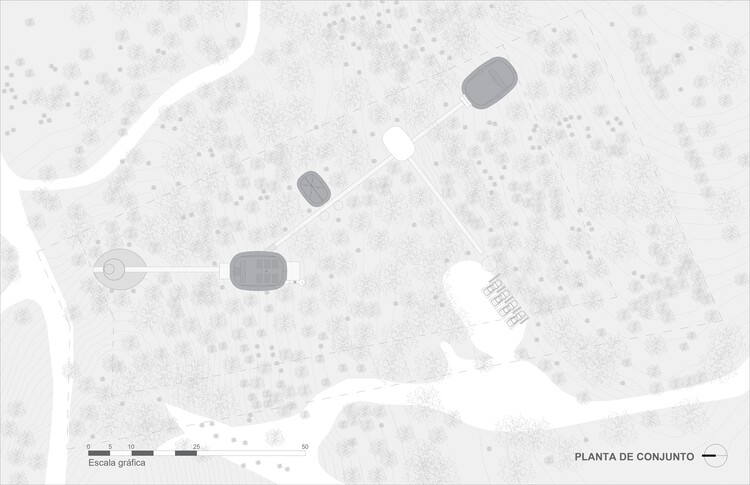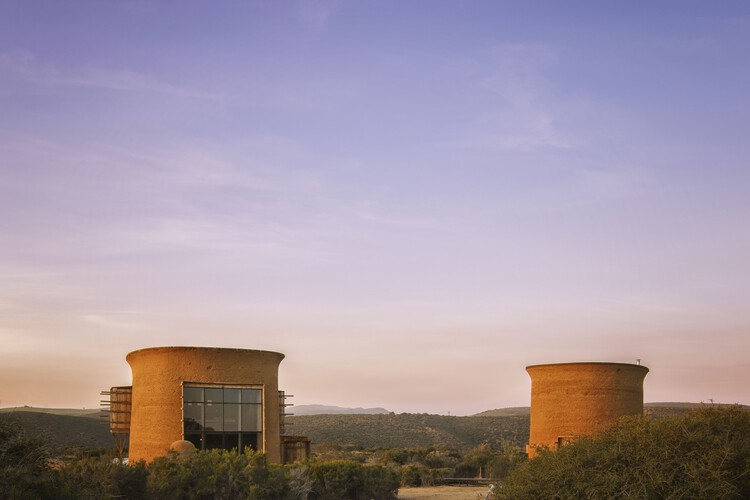
- Area: 254 m²
- Year: 2021
-
Photographs:Yoshihiro Koitani
-
Manufacturers: AutoDesk
-
Lead Architects: Claudia Turrent, Axel De La Torre



Text description provided by the architects. Dos Hijas Gallery is a project that pays homage to the vernacular architecture of arid areas around the world, seeking to reinterpret it in a contemporary way. With a focus centered on a single compositional axis, the intervention is organized as a living machine, where the facilities become the backbone of a vertebral column that connects the house, gallery, and guest house through an elevated exterior corridor traversing the entire site. This external circulation allows for the enjoyment of the landscape and climate every time the user moves between spaces.



Located in the beautiful town of Ensenada, Baja California, this project emerges from the coastal scrub, a fragile ecosystem that is disappearing with great alarm in the region and whose importance is undervalued. To achieve a harmonious integration with the natural environment, the vegetation located in the footprints of the buildings was carefully transplanted to protect it during construction and relocate it in the impacted areas, thus generating a symbiosis between architecture and the surrounding nature.



The construction was carried out using a traditional system known as COB. This ancestral method combines three materials: straw, clay, and granite to mold the structure, emulating the molding process of a clay vessel. Every centimeter of this architectural piece required meticulous manual work, showcasing the careful intervention of its craftsmen.


This construction method does not require any secondary structure. The walls, set on a stone foundation, start at a thickness of 80 cm at their base, gradually reducing to 50 cm with a delicate inclination and finishing with an exterior slope that provides protection against the elements. They are crowned with a concrete belt that ties the entire structure together at the top. These sculptural elements emerge like an eruption from the earth, resembling natural formations sculpted by the elements: earth, water, and sun, with the indispensable help of the skilled hands of the workers aided by the building owners themselves.


This architectural project stands out for its complete independence from the common infrastructure of a city. The roofs capture rainwater and store it inside, electricity is generated through solar panels, and a passive system treats, filters, and reuses all water within the project in harmony with its surroundings.
































